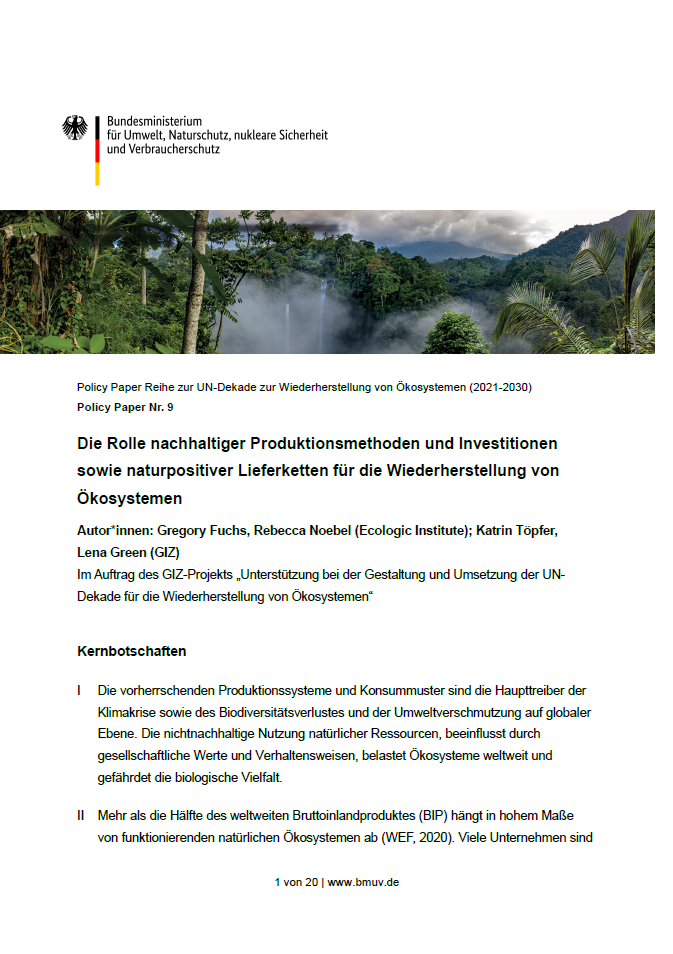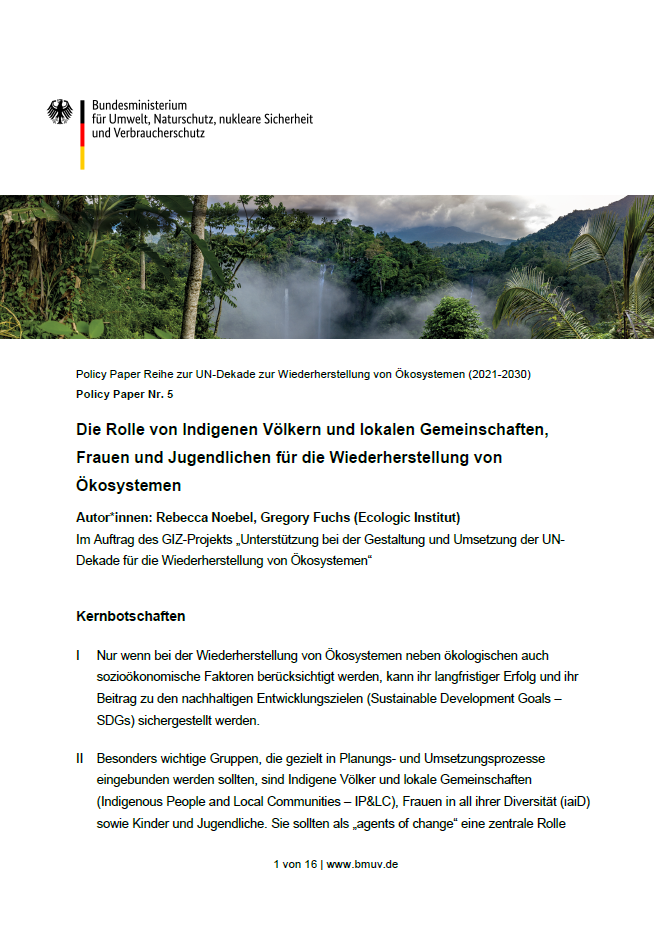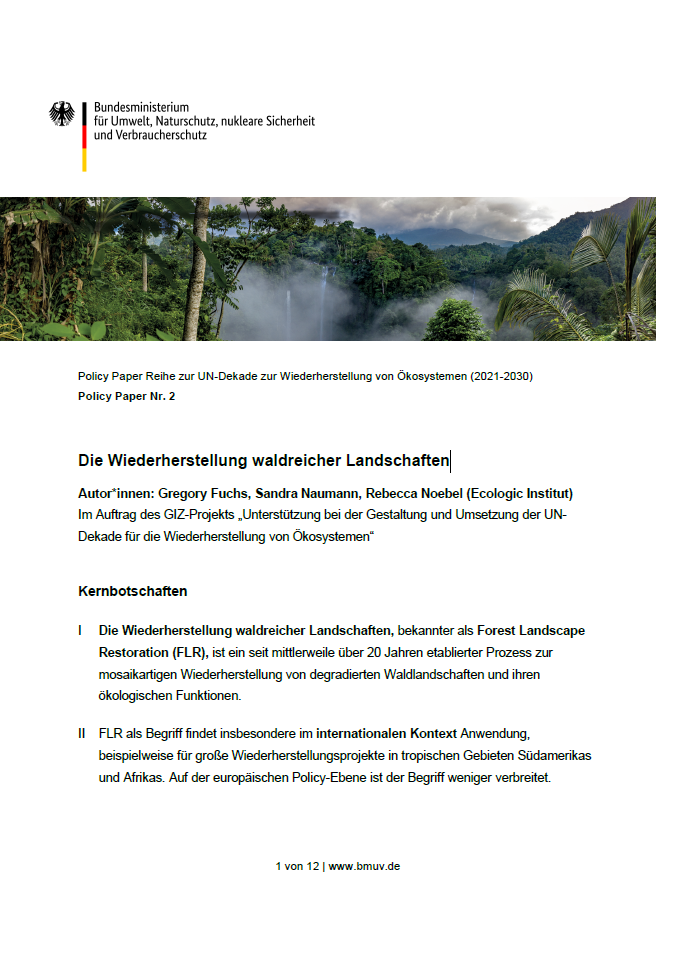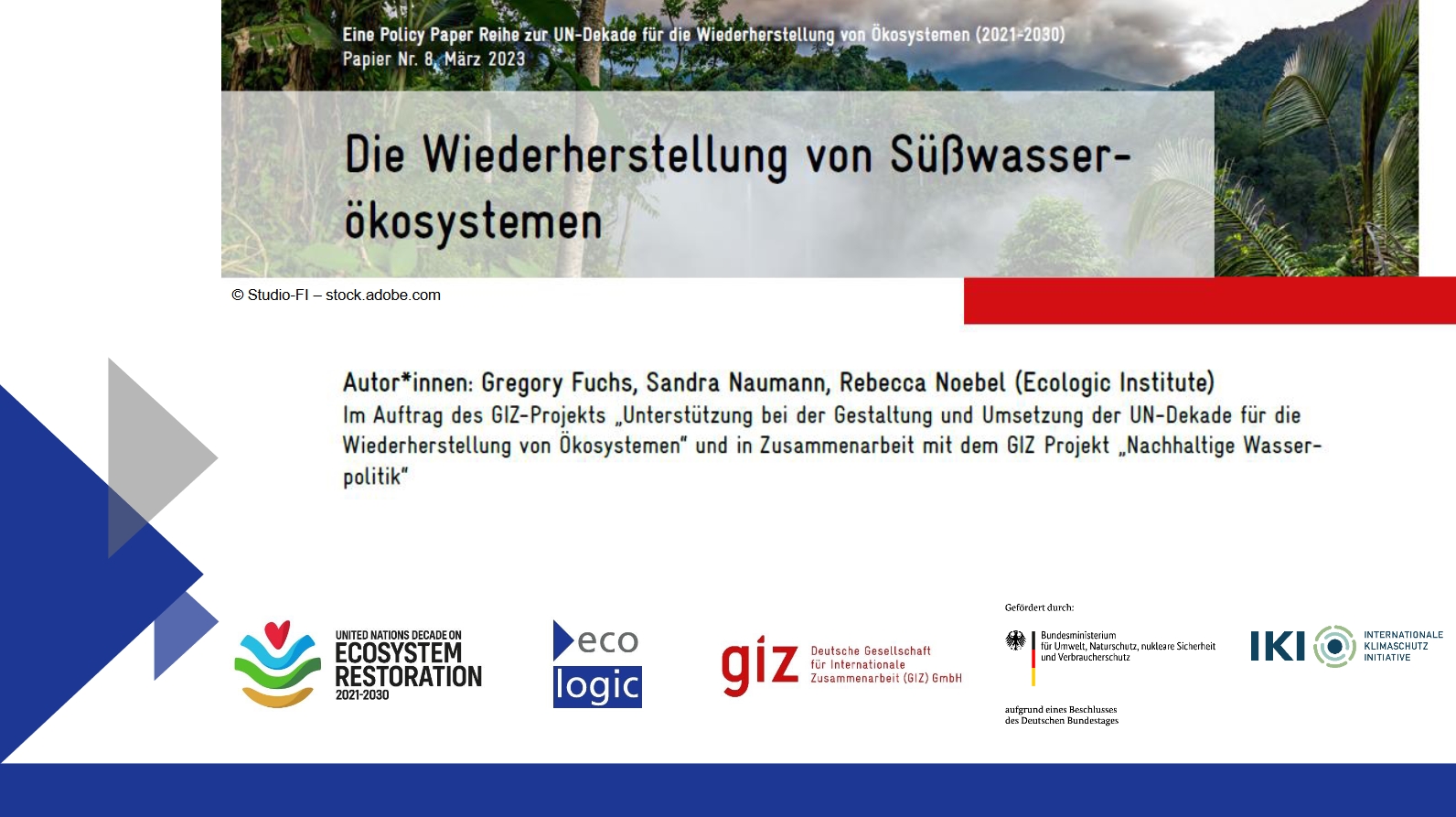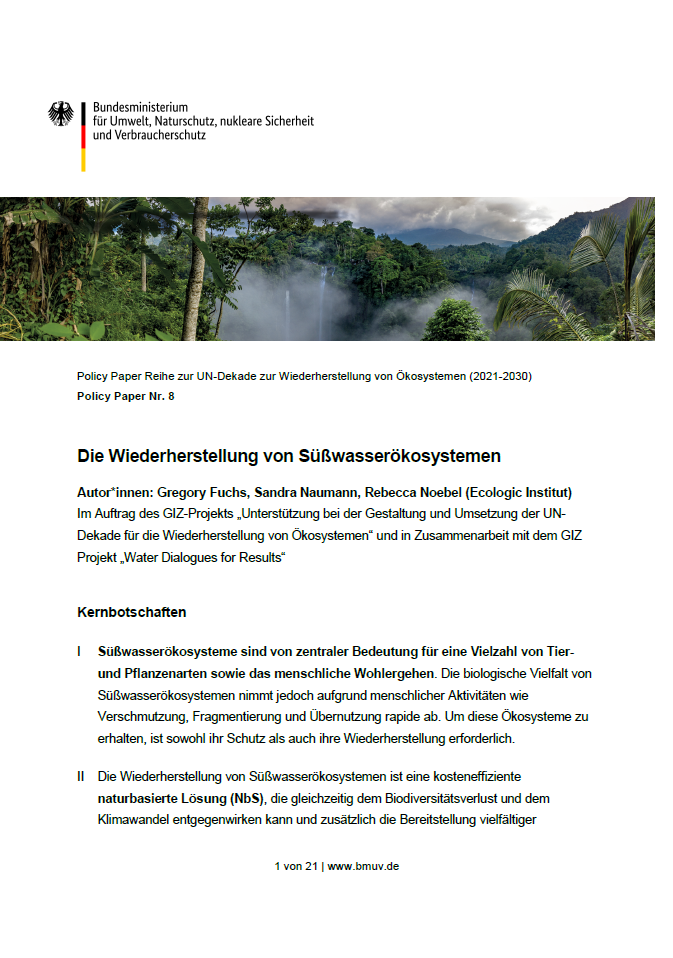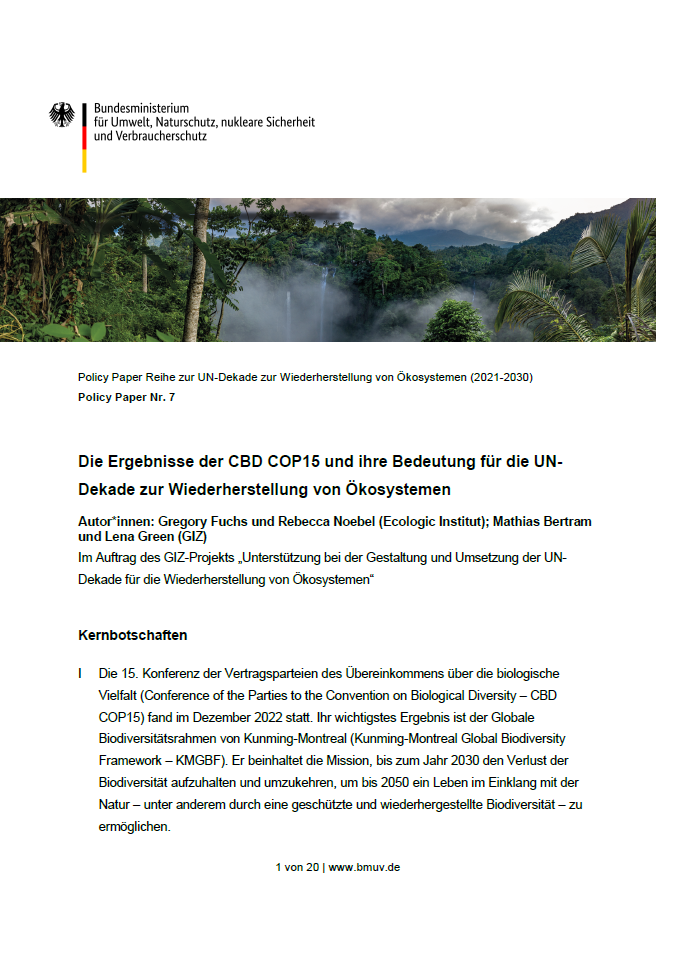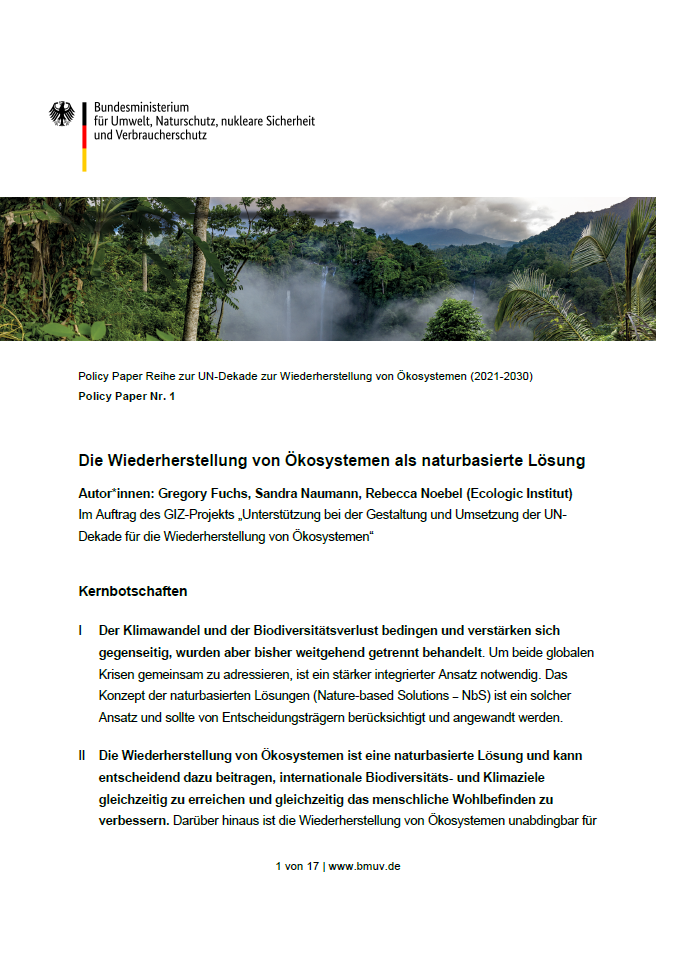Die Wiederherstellung von Meeres- und Küstenökosystemen
- Publication
- Citation
Fuchs, Gregory and Rebecca Noebel 2023: Die Wiederherstellung von Meeres- und Küstenökosystemen. Papier Nr. 6 der Policy Paper Reihe zur UN-Dekade für die Wiederherstellung von Ökosystemen (2021-2030). Federal Ministry for the Environment, Nature Conservation, Nuclear Safety and Consumer Protection, Berlin.
Marine and coastal ecosystems are invaluable as they provide important resources and services to humanity. In particular, the storage of CO2 in intact coastal and marine ecosystems play an important role as they contribute to climate change mitigation and provide major adaptation benefits. Nevertheless, human activities such as overfishing, pollution, and the effects of climate change are causing significant degradation of these ecosystems.
This policy paper, composed in 2023 and subsequently updated within the same year to reflect the latest scientific and policy advancements, addresses the restoration of marine and coastal ecosystems. Despite the urgent need for their restoration, there has been comparatively little political attention and implementation of restoration measures. The UN Decades of Ecosystem Restoration and Ocean Science for Sustainable Development are highlighted as crucial platforms that can support the necessary changes and contribute to the achievement of UN Sustainable Development Goal 14, which aims to conserve the oceans and marine resources. The new Global Biodiversity Framework (GBF) of the Convention on Biological Diversity (CBD) is recognized as an ambitious step, if it is strengthened and mainstreamed into national strategies, including specific targets for ecosystem restoration under "Goal A Target 2." If implemented ambitiously (as the Aichi Targets of the previous GBF were largely unmet, and another failure must be avoided), these could lead to significant improvements in marine and coastal ecosystems.
The policy paper advocates for synergies among UN decades and underscores the need to integrate various approaches to restoring marine and coastal ecosystems. The "ridge to reef" approach, acknowledging the interplay between land and marine systems, and the development of "seascape" approaches for ecosystem identification and restoration, are emphasized as particularly important. The paper calls for increased financial support for large-scale projects and research in marine ecosystem restoration and stresses the necessity of consistently implementing regional legal mechanisms, such as the EU's proposed regulation on nature restoration (NRL), and adopting them in other regions. The NRL's legally binding targets, including for nature restoration on 20% of the EU's land and marine areas by 2030 and for the restoration of all ecosystems by 2050, will significantly impact, contingent upon effective national implementation by Member States. Amidst accelerated climate change, the development of integrated approaches and adaptive management plans is recommended. Multidisciplinary and cross-sectoral collaboration, for instance, in implementing GBF targets at the national level, can enhance resilience and sustainable management of marine and coastal ecosystems. Addressing overfishing and its detrimental impacts, along with improving enforcement capacity, are identified as fundamental prerequisites for this.
